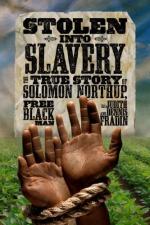|
This section contains 8,901 words (approx. 30 pages at 300 words per page) |

|
SOURCE: “Solomon Northup and the Sly Philosophy of the Slave Pen,” in Callaloo, Vol. 20, No. 1, Winter, 1997, pp. 243-59.
In the following essay, Worley argues that Northup's work presents a critical position on slavery, one that favorably compares with the writings of Frederick Douglass. Worley also asserts that Northup's narrative does not depend upon either a rational or providential construction.
Several rather sweeping assumptions about 19th-century slave narratives have made it difficult to fully understand or appreciate the significance of Solomon Northup's 1853 autobiography, Twelve Years a Slave. One assumption is that slave narratives must, as their formal telos, demonstrate “through a variety of rhetorical means that they regard the writing of autobiography as in some ways uniquely self-liberating” (Andrews xi). This romantic model of writing and selfhood, which elegantly conflates self-expression, self-mastery, and self-advancement, typically takes Frederick Douglass' 1845 Narrative as the foremost representative of the genre.1 Another assumption, to...
|
This section contains 8,901 words (approx. 30 pages at 300 words per page) |

|


